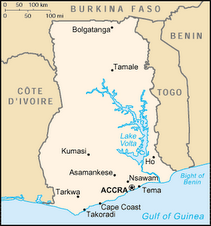Working in a
financially deprived region has the reward of saving lives. The infected young or
road traffic patients are able to respond to care, antibiotics and blood transfusions; however,
not all survive. Patients are admitted in septic shock with deep neck abscesses
from carious molar teeth. Recently, four have died from sepsis or hemorrhage. There are only three dentists in northern Ghana for two million people. There are four road
traffic accident patients currently on the ward who have lost their scalp or face; one an 18 month-old child, another a 19 year-old boy whose injury also includes a facial
paralysis and hearing loss. The young, risk-taking, helmet-less motorcyclists observe few traffic rules and the police do not have the capability of enforcing laws. Police are not in vehicles, seen only on foot. Road traffic
accidents will soon be the major cause of death in the developing world, exceeding
malaria. It is sad to see so many bright young people die needlessly.
Working in a
poor hospital is difficult. It is often necessary to collect medications from
discharged patients in order to supply new patients who cannot afford them or when
the hospital does not have the needed drugs on hand. For the last two days, there has been no oxygen
or water. Therefore, there is no sterilization of instruments, no bandages, no washing
of linens and gowns and no surgery. The hospital is not functioning well.
Road Traffic Infant After Skin Grafting To His Scalp


